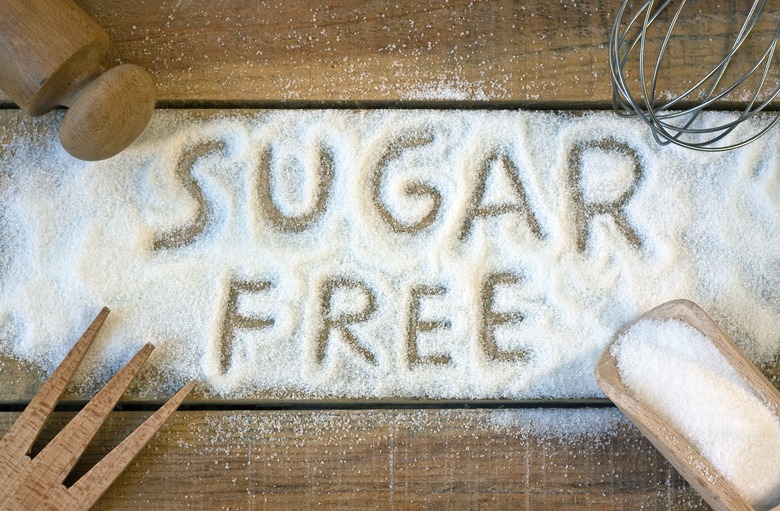Debunking The Myths About 'Reduced-Fat,' 'Zero-Calorie,' And Artificial Sweeteners
If the words "fat-free," "sugar-free" or "zero calories" convince you to purchase and consume certain foods and drinks, listen up. While healthy alternatives always are welcomed, we need to know exactly what we're putting into our bodies. Sometimes all of the food labels and buzzwords can make healthy eating more complicated than it needs to be.
Let's sort through the facts and myths about these oh-so-tempting diet products.
Myth: Artificial sweeteners, such as those found in diet sodas, are bad for you and will make you fat.
Fact: Like almost anything, artificial sweeteners aren't bad for you in moderation. They are beneficial when used in a diabetic or low-calorie diet. Also, contrary to popular belief, there's been no conclusive research indicating that they cause cancer or brain tumors in humans. But artificial sweeteners, which are significantly sweeter than sugar, mean that those products in which they are used also have other additives, which could be undesirable to some health-conscious people.
Likewise, the research conducted tying diet soda to an increase in obesity isn't true.
Myth: Reduced-fat, low-fat or zero-calorie foods are healthy alternatives.
Fact: Removing the fat from food often means an increase in additives or unhealthy levels of sodium and carbohydrates to compensate for the change of flavor. Sometimes these additives make a low- or reduced-fat food just as bad for you if not more than the regular product.
Myth: High-fructose corn syrup is worse than sugar or artificial sweeteners.
Fact: High-fructose corn syrup was designed to come as close as possible to replicating sugar, which as far as calories go, it does. As a sugar substitute, it's no better or worse for you than a cube of the real stuff.
The big problem seems to be how much sweeteners are used in everyday diets. High intake of sweeteners — real or designed — can result in fatty liver disease, insulin resistance, heart disease and Type 2 diabetes.
— Melissa Valliant, HellaWella
More From HellaWella:
• Green market glossary: Farmers market labels demystified
• 3 surprisingly unhealthy reduced-fat foods
• The side effects of caffeine no one thinks about
